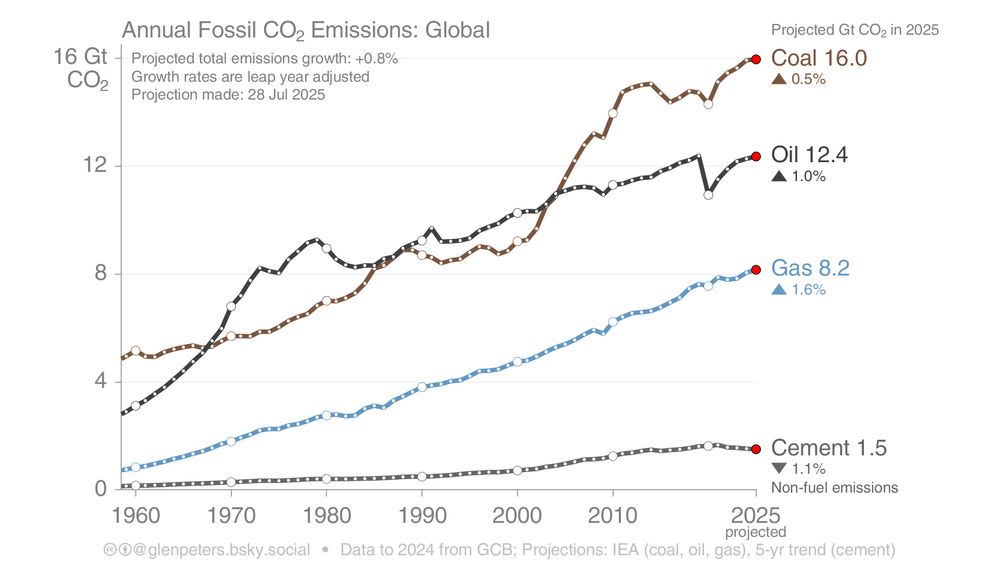
Economist and macroeconomic modeller, working mainly on climate change. Advocate of economic pluralism. #CambridgeTradition #Complexity
But he probably thought nothing could go wrong with every Microsoft product.
Why? Because it opens up an affordable route to get off gas and further lower bills, via electric heating

Reposted by Hector Pollitt

Why? Because it opens up an affordable route to get off gas and further lower bills, via electric heating
A lot can be fudged by assuming linearity and because models are mostly linear. But if we ever get to linking models where small differences get amplified over time/space we will really need to tighten.

These are exactly the sorts of questions economists should be looking at - but often shy away from.
www.economist.com/leaders/2025...
Reposted by Hector Pollitt

climatepolicyjournal.org/2025/08/11/c...
We spend more on fossil fuels, we exhaust cheap supplies and prices go up. We spend more on new technologies, we learn and prices go down.

www.tandfonline.com/doi/full/10....

It also introduces ICENS lab, which takes a broader perspective.
Thoughts and comments welcome!
www.linkedin.com/pulse/why-in...
Reposted by Du Toit, Robbie M. Andrew, Rupert Read , and 2 more Du Toit, Robbie M. Andrew, Rupert Read, Brett Christophers, Hector Pollitt

We are only half way through the year, but don't build too much expectation for peak emissions.

